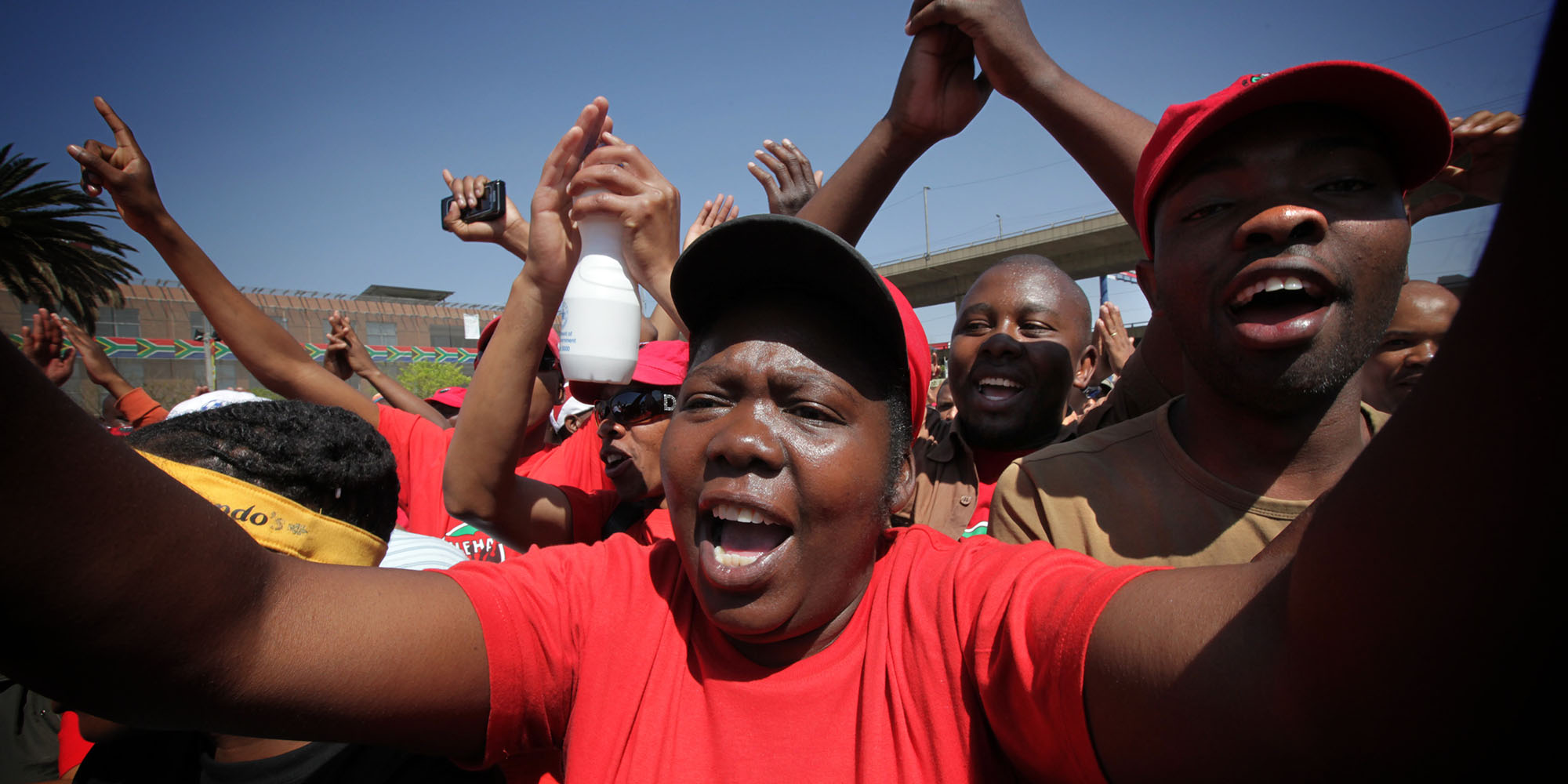The majority of trade unions representing public servants have accepted the government’s offer of a below-inflation salary increase and monthly cash allowance, ending a long-standing impasse between both parties that could have undermined efforts to stabilise SA’s deteriorating public finances.
About 60% of trade unions have accepted the government’s offer, which includes a “once-off pensionable” salary increase of 1.5% from 1 April 2021 to 31 March 2022 for public servants. This is a blanket salary adjustment because it will be offered to all public servants, regardless of their number of years in service or existing salary level.
On Monday, the Public Servants Association (PSA), which claims to represent 23,000 public servants, accepted the government’s offer after initially rejecting it and threatening to embark on a general strike that would have shut down public services. At the eleventh hour, the PSA accepted that public finances were under pressure due to the Covid-19 pandemic and the recent social unrest, which will require the government to bankroll income relief measures for finally distressed households and businesses.
“The PSA and its members have witnessed the country’s deepening economic crisis owing to the Covid-19 pandemic, looting of state coffers through corruption, sharp increases in inflation, the cost of food-related products as well as unrest and looting.
“The PSA has also noticed the impact of this situation on public servants who are feeling the compounded effects of not receiving a salary increase for two consecutive years. The PSA strives to assist in repairing the damage, trust, and decrease poverty without further damage to the economy,” the trade union said.
Mugwena Maluleke, the chief negotiator for trade unions affiliated to Cosatu, said the approval of the government’s compensation offer has passed the mandatory 50% threshold. This was made possible by the PSA’s last-minute backing of the government’s salary increase offer.
A compromise was embraced by trade unions as the government’s 1.5% salary adjustment offer is below their expectations.
Trade unions have been in talks with the government for more than a year and even threatened to shut down public services through a general strike if they were not awarded inflation-busting salary increases of at least consumer inflation plus 4%. This works out to an increase of more than 8%, as consumer inflation was 4.9% in June 2021.
The 1.5% salary increase will be implemented from August 2021 by the Department of Public Service and Administration (DPSA), which oversees the terms of employment in the public sector. But the salary increase will be backdated to 1 April, a period in which the government usually adjusts the remuneration of SA’s 1.3 million public servants, including doctors, nurses, teachers and police officers.
Business Maverick has seen a copy of the salary increase agreement reached between the government and trade unions that was drafted at at the Public Service Co-ordinating Bargaining Council (PSCBC), where both negotiate the terms of employment in the public sector.
It reads: “The employer [the government] will pay a once-off pensionable salary adjustment of at least 1.5% to all employees employed in the public service on 1 April 2021, who do not receive a pensionable increase derived from pay progression [in other words, a salary increase linked to years of service] in respect of the applicable performance cycle, payable to them in terms of any PSCBC or Sectoral Agreements regulating pay progression, including employees on the maximum notch of their salary levels.”
This is the agreement that the majority of public service trade unions have accepted.
The 1.5% salary increase is not new as it has already been budgeted for by the National Treasury and is part of its existing pay progression framework for the next three years.
Trade unions representing a majority of public servants and affiliated with Cosatu have accepted the government’s offer. Trade unions that have accepted the government’s offer include the PSA, Democratic Nursing Organisation of South Africa, Health and Other Services Personnel Trade Union of South Africa, and National Teachers Union.
A win for the government
The compromise by trade unions is arguably a win for DPSA Minister Senzo Mchunu and Finance Minister Tito Mboweni because the pair have been firm in their plan to implement a three-year salary freeze for public servants.
Mboweni set the cat among the pigeons in early 2020 when he announced a review of the 2018 salary agreement in the public sector. This would involve reducing the government’s expenditure on remunerating public servants by R300-billion over the next three years.
At R650.4-billion in the 2021/22 financial year, expenditure on paying public servants is the largest component of the government’s overall expenditure, accounting for around 35% of government expenditure.
Credit rating agencies have closely watched the public sector remuneration talks after issuing warnings for the government to rein in expenditure and ballooning debt.
Over and above the 1.5% salary adjustment offer, the government proposed that public servants be awarded a “monthly non-pensionable cash allowance” of between R1,220 and R1,695 – depending on their salary level (see below).

The cash allowance will be subjected to tax and public servants can expect, on average, to each receive about R1,000 per month.
This is an improved offer as the government initially offered public servants a monthly cash allowance of R978. The sweetened cash allowance helped convince trade unions to accept the government’s remuneration offer.
According to Business Day, the improved cash allowance will cost the government about R18-billion, which the Treasury will fund through the pooling of existing benefits for workers and possibly cutting departmental budgets.
The DPSA told Business Maverick that the 1.5% salary adjustment and cash allowance offer had been approved by the Treasury.
“The Treasury and DPSA have been working together on the proposal. Whatever has been presented as the government’s offer has the approval of the Treasury.” DM/BM
Business Maverick
Public sector unions accept the government’s below-inflation salary increase offer





